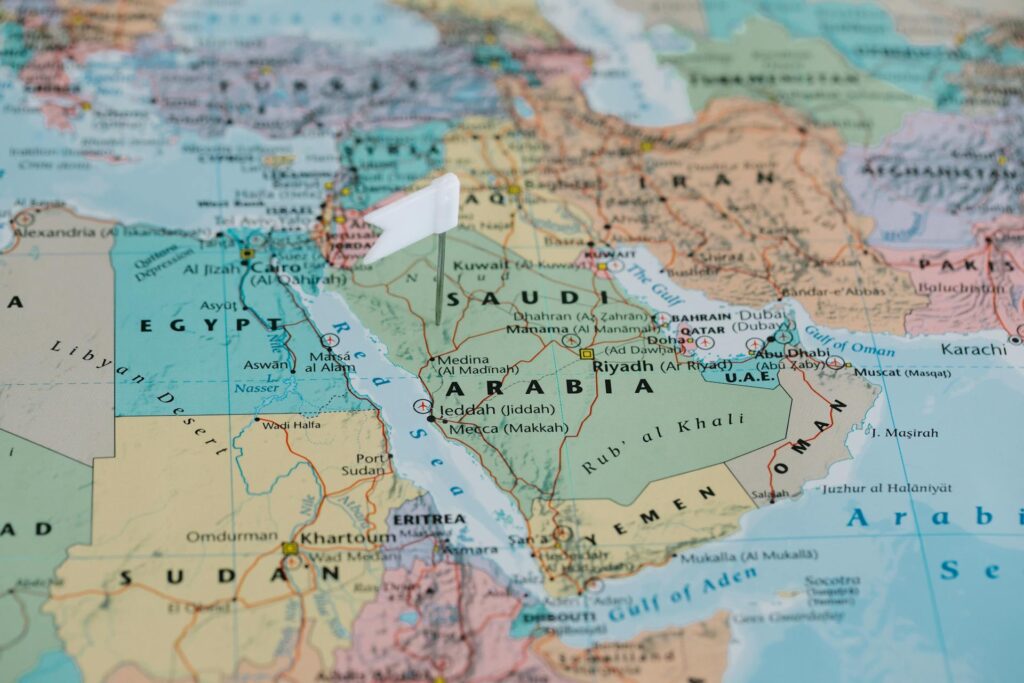The land known for its hospitality, breathtaking nature, good healthcare, the rule of law, and a stable economy is a logical choice if you’re thinking about moving abroad. But before you go anywhere, you need to know what your wallet has to say. The cost of living in Canada is something you must get familiar with before you pack your bags and head north. Stay with us to see what you can expect money-wise in this beautiful country


What Expenses Should You Expect?
It’ll be good to know what awaits you in the place you’re moving to. You may find out that there are some costs that you didn’t see coming or some that you didn’t have in your homeland. Our northern neighbor offers a lot to its residents, and moving to Canada will allow you to have a high quality of life at a reasonable price, depending on where you decide to settle.
Take into account that this is a vast country and that different cities in the Great White North have different prices. Other crucial factors include whether you are moving alone or with your family and how many members your family counts. Your expenses will also depend on your reasons to relocate. On average, an adult will spend $280 monthly for food, $33-$45 for cellphone plan, $30-$113 for Internet, and anywhere from $800-$1000 for rent. Again, it depends to a great extent on where you choose to live.
Housing and Utility Expenses
When it comes to the place you’ll live in, you can rent or buy an apartment or a house. Renting usually costs less outside the big cities, and you’ll likely pay at least $2,000 for a large house or an apartment. A room will cost you $350 at best. Buying a house will probably mean that you’ll get a mortgage or a loan at a bank. Except for that, you’ll need to take care of the property tax and household insurance.
Basic monthly utilities like electricity, heating, cooling, water, and garbage are around $110 for a 915-square-foot apartment. Phone calls to people outside of this country might be pricey.
If you plan on living in Toronto or moving to Montreal as a student, your monthly expenses excluding rent will be around $880 or $700, respectively – and that’s the lowest it can go. One person will spend about $1,000 per month in both cities.
How Much Is the Food?
As a daily expense, food in inexpensive or mid-range restaurants is not too pricey. According to the website Numbeo, lunch in an inexpensive restaurant is $12, and a three-course in a mid-range restaurant for two people is about $50. A combo meal at McDonald’s would be $7.5.
As for the groceries, expect to pay $7 for a gallon of milk, $2 for a loaf of white bread, $2.50 for twelve eggs, and $1.6 for a bottle of water.
Don’t be surprised if you find something that costs more than in the US, but most of the daily prices are in a reasonable price range. Take into account that if you consume alcohol or cigarettes, they’re heavily taxed and expensive.
How Much Is Transportation?
Transportation expenses, such as a one-way ticket for local transportation is $2.3, and the regular price for a monthly pass is a bit more than $70. If you use a taxi for commuting, the starting price is $2.8, and one hour of waiting costs almost $25. And if you plan to hire overseas vehicle shipping services, keep in mind that one gallon of gasoline is worth $4.
What About Insurance?
Some health programs may not cover newcomers for the first three months they spend in Canada. It’s best for you to avoid unexpected costs and to check with the ministry of health in the province you’re moving to if this is going to be your case. Each province and territory has its health insurance plan, so you need to make sure you know what your plan covers. In the meantime, you can get private medical insurance.
As for car insurance, by Canadian law, every vehicle must be insured and registered, and it can be high-priced, but it surely serves a purpose. You’ll be protected from all possible accidents, and so will the other traffic participants.


Money-Related Benefits of Being a Canadian
In case you’re expecting or planning a baby, it’s excellent news for both parents in every way! The Canadian Government invests in parenthood, and you’ll have mandated leave and benefits that could be paid up to almost $600 a week. On the contrary, the US allows 12 weeks of unpaid leave.
The US has the highest healthcare expenses in the world, amounting to more than $10,000 per capita per year. Canadian healthcare is free and universal, so you won’t have to pay if you go to a doctor or the dentist, or any kind of medical visit. The average person will give $3,000 annually for taxes since healthcare is funded through it.
If you’re a permanent resident, there’s an option for you to apply for public health insurance so you won’t have to pay for most healthcare services even if you don’t have a government health card. Depending on the province you live in, the waiting time for that card can be up to three months, and you must show it every time you want to get medical services. Also, you can get free emergency medical services anywhere, regardless of where you live and which hospital you entered.
The same applies to university expenses: in the US, it’s a considerable expense, and many students are swimming in loans with more than $8,000 for annual tuition. The average yearly tuition in Canada is less than $5,000.


Tax-Related Facts
Taxes are calculated based on the income you make. You’ll be taxed by the national government, and then by your provincial or territorial government. You have to do an annual tax return in which you’ll report your income and see whether you owe tax or are in for a refund. The self-assessment tax system is widely regarded as the most practical and effective way of collecting income tax. Every taxpayer has to earn a taxable income of $12,000 before paying any federal tax.
People who work in Canada have taxes taken out of their salaries. Those who work independently have to pay the fees of their business in advance or to set aside the money. This way, the cost of specific essential services (healthcare, public schools, university, childcare) is already paid for.
There Are Provincial and Harmonized Sales Taxes
There are two types of sales taxes that are charged. Provincial sales tax (PST) is imposed by the provinces while the federal government levies the value-added Goods and Services Tax (GST) or the Harmonized Sales Tax (HST).
The whole nation pays the GST, while the HST includes the provincial part of the sales tax but is managed by the federal Canada Revenue Agency. The HST is in place in the following provinces: Ontario, New Brunswick, Newfoundland and Labrador, Nova Scotia, and Prince Edward Island. Every province has implemented either a PST or the HST. Alberta is the only exception.
Read About the Tax System
To make sure that you know what to expect, read everything that you can find online about the Canadian tax system. Canada has a higher average effective tax rate than the US by almost 30%. Business Insider reports that after taxes, Canadians usually bring home more than $35,000 annually. In the States, the effective tax rate is lower at 18%. The average post-tax annual salary in the US is a bit more than $52,000.
On the website of the Canadian Government, there’s a manual on how to calculate your taxes for every sum of money you make. There are also provincial and territorial tax rates for 2020 for all provinces except Quebec. They’re calculated the same way as the federal tax.


What Are The Most Expensive Cities?
You might want to consider avoiding the highest-priced Canadian cities if your budget doesn’t allow it. Based on the data from the Immigration World, the priciest places are Toronto in Ontario, Vancouver and Victoria in British Columbia, Hamilton-Burlington in Ontario, and Calgary in Alberta.
Even though they are declared the priciest, they have lower living costs than many other locations in the developed world, and Toronto and Vancouver are the most popular communities in this country among immigrants due to various job opportunities and high average salaries.
Choosing to live in Ottawa or Montreal could slightly bring down the expenses of housing and rent. For example, the price of renting a one-bedroom house in Montreal is $1,500, and in Ottawa is $1,300, while Toronto and Vancouver top that amount by almost $1,000.


So, What’s the True Cost Of Living In Canada?
If you got lost in all these numbers, the conclusion is that Canada isn’t too expensive if you consider everything it has to offer. Overall, if you compare what you get and at what cost, moving here would be a fantastic choice for any expat, especially those from the US. The great educational system and public schools, free healthcare, excellent quality of life, amazing nature at your doorstep, great job opportunities, and the right conditions for retirement – this country covers all the bases of a perfect life. If you want to lower the expenses for your family in the long term, this nation is the final top destination for you, especially if you’re moving with kids abroad.
The Cost of Living in Canada Compared to the US
To make things even simpler, if we compare the cost of living in the two most high-priced cities in both countries (Toronto and New York), index difference shows that everything is cheaper in Toronto. Consumer prices, rent, restaurants, groceries – all of them are 20% to 50% lower in Canada’s largest city. The same applies if you compare Los Angeles to Vancouver. Renting a place in LA is 40% more expensive than in Vancouver, as well as the price of rent in San Francisco, which is higher by 240% than in Ottawa.
Even if we compare Austin, Texas, as one of the more affordable major cities, with Montreal, you’ll get similar results – everything costs less in the Great White North (except groceries, which are more costly in Montreal by only 0.7%).
Don’t Forget About the Cost Of Moving
After you decide to move from the US and when you find a suitable location abroad, it’s crucial to hire a good international moving company. Every relocation requires a certain amount of money, especially an international one. Count that in when planning your budget. Consider how much you’ll need for international moving services, perhaps also packing, and maybe storage in case you need it.







